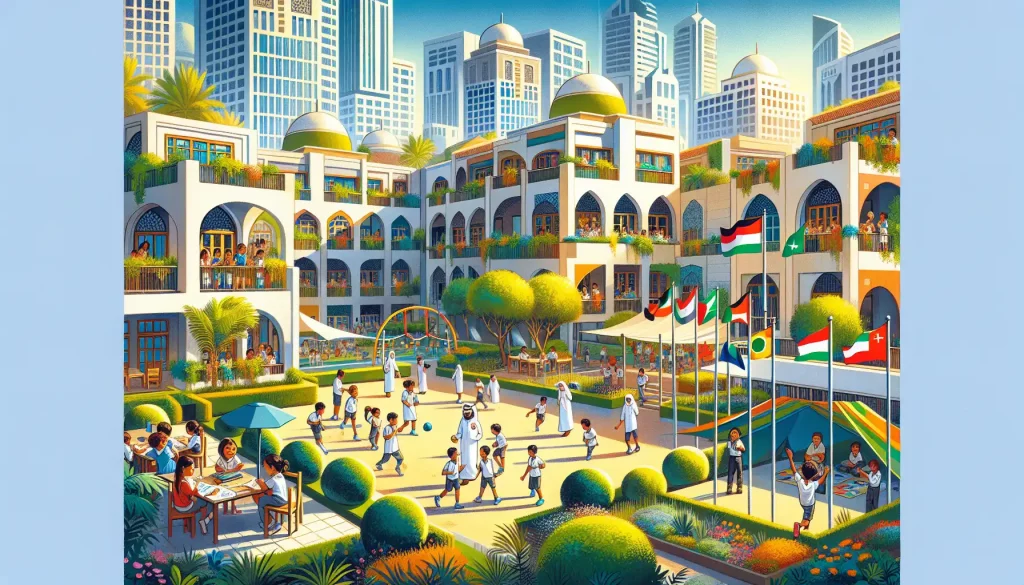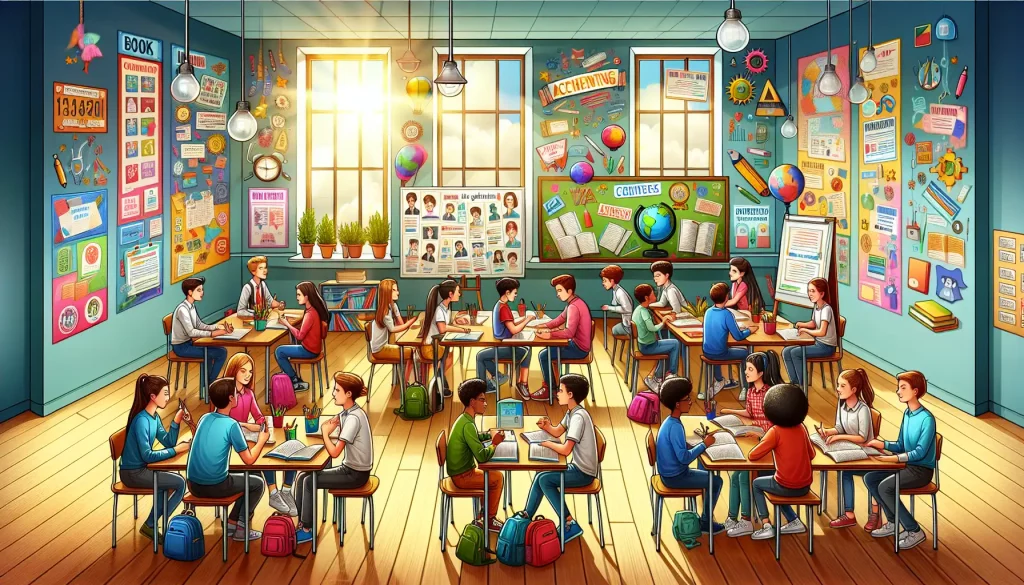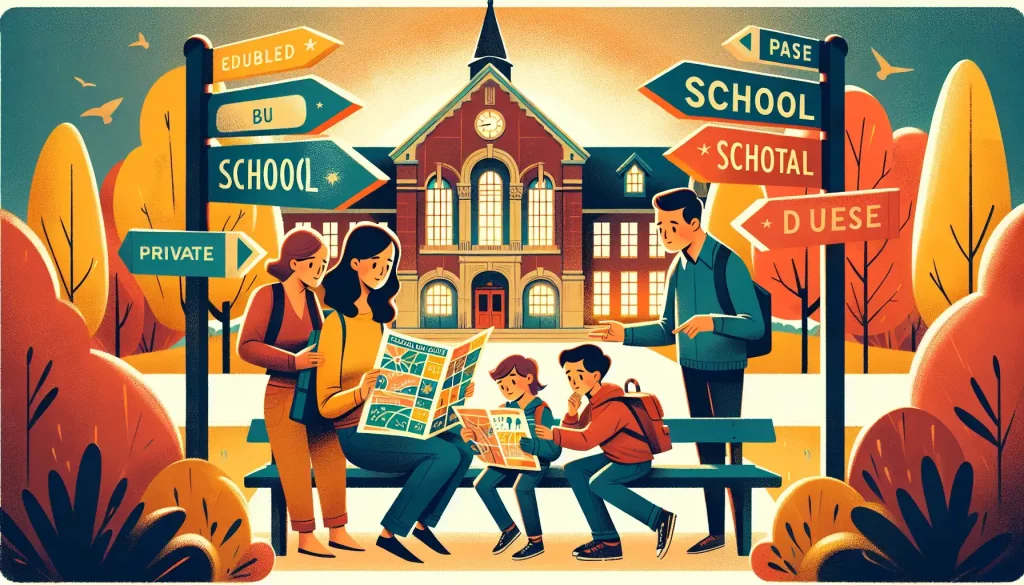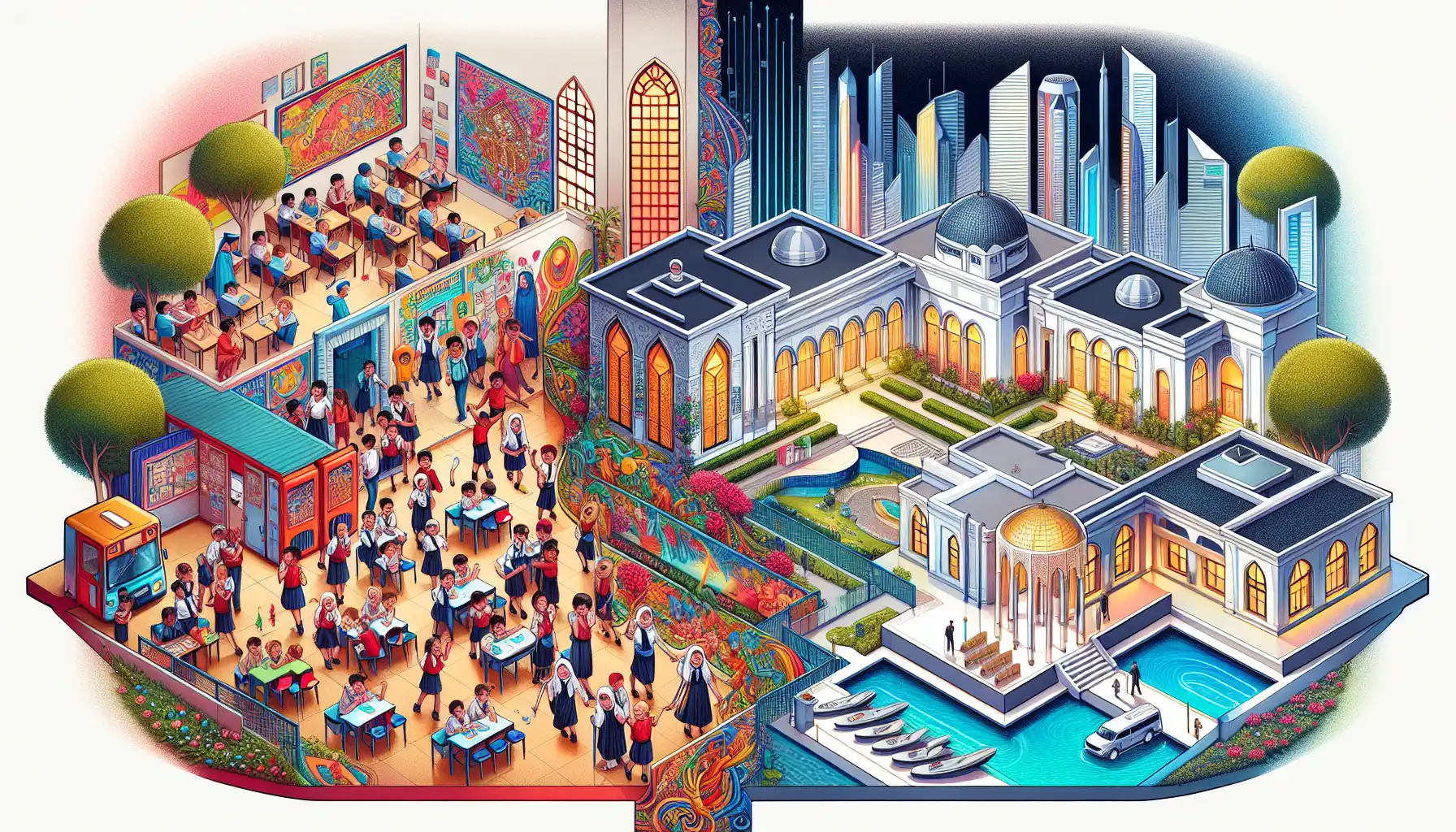Public vs Private Education in Dubai: Pros and Cons for Parents and Students
Struggling to choose between Public vs Private Education in Dubai? This article highlights the pros and cons of each option, helping you make the best choice for your child’s education.
Key Takeaways
- Dubai’s education system includes public and private schools, with public schools offering free education primarily for Emirati students and private schools catering to a diverse expatriate population with a variety of curricula.
- Academic performance differs significantly; private school students demonstrate higher success rates in core subjects compared to their public school counterparts, while both types of schools provide tailored support for students with special needs.
- Key considerations for parents when choosing a school include curriculum options, academic standards, extracurricular activities, and facilities, which should align with their child’s needs and future aspirations.
Overview of Dubai’s Education System

The educational framework in Dubai, administered by the Knowledge and Human Development Authority (KHDA) together with the Ministry of Education, is segmented into four key levels: Kindergarten, Primary Education, Secondary and Higher Education. Although formal education commences at the age of six, it’s common for parents to initiate their children’s schooling journey as early as three years old through preschool enrollment.
Below are the main tiers within Dubai’s educational hierarchy.
- Kindergarten
- Primary Education
- Secondary Education
- Higher Education
Education officially begins at six years old. Many opt to place their youngsters in preschool starting from age three.
Spanning from September through June, each academic year in Dubai incorporates several intervals designed to provide a well-rounded balance between rigorous study sessions and ample time for relaxation and enjoyment.
Public Schools in Dubai
Dubai’s public schools, overseen by the UAE Ministry of Education, deliver complimentary education predominantly to Emirati children. These institutions implement a national curriculum with a strong focus on Arabic language and cultural traditions, showcasing the nation’s deep-rooted legacy. Schools in Dubai play a crucial role in shaping the educational structure within the community.
A significant number of Emirati parents opt for these public schools due to their emphasis on preserving national identity and providing education at no expense, guaranteeing that all Emirati students have opportunities for quality learning.
Government School Curriculum
The curriculum in public schools fosters a robust sense of national identity, emphasizing Arabic as the main language, while also ensuring that students achieve proficiency in English as a second language to prepare them for participation in the global arena.
To enhance their educational journey, public school students are immersed in cultural education initiatives through various activities and workshops designed to broaden their appreciation of Emirati customs and values.
Benefits of Public Schools
Public schools in Dubai offer Emirati children the advantage of receiving education at no cost, promoting mandatory learning while fostering a culture of inclusivity and equal chances for all.
With its Strategic Plan 2017-21, Dubai is focused on improving its public education system by embracing innovation, increasing efficiency, and striving for excellence in leadership. This plan prepares students to meet the challenges they will face in the future head-on.
Private Schools in Dubai

In Dubai, approximately 90% of students are enrolled in private schools, which predominantly serve the expatriate community. These institutions promote a multicultural atmosphere that enhances cultural understanding and encourages a global outlook.
One of the principal reasons why private educational establishments are sought after by expatriate parents is their array of curricular choices. This diversity not only caters to those aiming for superior education for their offspring but also connects with aspirations for elevated social standing. Private international schools in particular provide an eclectic and adaptable learning experience reflecting this need.
Diverse Curriculum Options
In Dubai, there are 17 curriculum choices available within private schools, including top preferences like the British, American, Indian, and International Baccalaureate (IB) systems. Organizations such as GEMS Education represent this breadth by providing a range of international education curriculums all in one location.
Such diversity allows parents to choose an educational program that is most suited to their child’s way of learning and their future academic aspirations.
Innovation and Quality
In Dubai, private schools are engaging in relentless competition that fosters constant enhancement of quality and innovation. These schools are integrating pioneering teaching techniques and developing varied educational settings to attract an increasing number of students, thereby elevating their scholarly success.
This collaboration between inventive approaches and excellence guarantees that the education received by students not only meets current standards but also furnishes them with essential skills for prospective accomplishments.
Comparing Costs: Public vs Private Schools

The financial implications of education play a pivotal role in the decision-making process for parents when considering options between public and private schools. Public schools provide complimentary education to Emirati students, while expatriate families incur average annual tuition fees of close to 6,000 AED.
Conversely, attending a private school typically incurs higher expenses with tuition rates that differ significantly based on the type of curriculum offered and the amenities available at each institution. Within the private school sector, numerous parents opt to enrol their children in these more expensive institutions due to their reputation for superior quality and diverse educational offerings.
Academic Performance and Standards

Parents place significant importance on academic achievement when selecting schools. In Dubai, students attending public schools encounter difficulties in foundational subjects, as merely 68% achieve the anticipated proficiency standards in mathematics and science.
Conversely, private institutions demonstrate a more impressive rate of accomplishment with 95% of their pupils reaching expected competency benchmarks. The annual inspections and evaluations conducted by the KHDA play an essential role in ensuring elevated quality within these educational establishments, thereby assisting parents in identifying the top-performing schools for their offspring.
Extracurricular Activities and Facilities
Holistic development is significantly influenced by extracurricular activities and amenities available to students. Private schools in Dubai are typically equipped with high-end facilities, including science laboratories and swimming pools, which contribute to an enriched educational environment. These schools frequently promote qualities like leadership, creativity, and teamwork through a diverse array of clubs and initiatives.
In contrast, public schools tend to have more limited resources for extracurricular offerings. This restriction often results in a reduced assortment of activities that can be provided outside the standard curriculum.
Language of Instruction
Public and private schools are distinguished by the language used for teaching. In public schools, Arabic is the main medium of instruction, while English is introduced to students as a second language.
On the other hand, private schools provide an extensive variety of linguistic curricula with a strong emphasis on mastering English. Alongside this, they integrate Arabic and additional contemporary languages into their programs, equipping pupils with robust communication skills suitable for international environments.
Higher Education Pathways
Both public and private institutions play a significant role in preparing students for higher education, encompassing secondary education. Graduates from private schools tend to outperform their peers on global exams, which may give them an advantage when applying to universities and underscores the advantages of a private education.
It is crucial for parents seeking the right school for their children’s future success in higher education to comprehend graduation prerequisites and standardized examinations such as the IB Diploma, SAT, and IGCSE. Familiarity with these requirements is vital in selecting an educational institution that matches their child’s ambitions for advanced study.
Special Needs Education
In Dubai, both private and public schools are dedicated to offering high-quality education to students with special needs. Ensuring equal access to educational opportunities and individualized support services is mandated by Federal Law No. 29 of 2006.
To cater to the varied requirements of these students, there are specialized centers and amenities like sensory rooms within these schools. It is compulsory for all schools, whether they operate in a mainstream or specialized environment, to provide extensive assistance tailored specifically to each student’s needs.
Cultural Understanding and Integration
The education system in Dubai places a strong emphasis on cultural understanding and integration. Students from diverse backgrounds are encouraged to prosper in public schools due to their focus on inclusivity. Meanwhile, private schools enhance cultural awareness by hosting events and initiatives that celebrate diversity. Such strategies enable students to cultivate empathy and respect for distinct cultures, contributing to a cohesive atmosphere within the schools.
Choosing the Right School

Selecting the appropriate school requires careful consideration of various elements, including the range of courses available, the expertise of teachers, and the quality of infrastructure. Parents must scrutinize educational curricula and determine their fit with their child’s requirements and long-term ambitions.
By taking into account these aspects, parents can make well-informed choices that guarantee their children obtain an education that is both exceptional and suited specifically to their distinct talents and plans.
Summary
To summarize, schools in Dubai, whether public or private, come with their own sets of benefits and obstacles. Public schools deliver education at no cost and focus on fostering a sense of national identity. In contrast, private schools in Dubai provide an array of curricular options and boast enhanced amenities.
Deciding between public education and private schooling hinges upon personal preferences and requirements unique to each family. Parents who thoroughly comprehend the distinctions between these educational models are better equipped to choose wisely for their children’s learning paths.
Frequently Asked Questions
What are the main differences between public and private schools in Dubai?
The main difference between public and private schools in Dubai lies in their curriculum and student demographic; public schools focus on a national curriculum in Arabic for Emirati students, whereas private schools provide various international curricula primarily for expatriate families.
How do the costs compare between public and private schools?
Education for Emirati students is offered at no cost in public schools, while expatriate learners are subject to an annual fee of about 6,000 AED.
On the other hand, private schools tend to charge more significant tuition fees, which vary depending on the curriculum and the amenities they provide.
What extracurricular activities are available in Dubai schools?
In Dubai, while private institutions often provide a broad array of extracurricular options such as sports, arts, and leadership programs, public schools usually have a narrower range of activities available because they tend to have fewer resources.
How do public and private schools handle special needs education?
Public and private schools both offer specialized support for special needs education, adhering to federal laws that guarantee equal educational access. This ensures that students receive appropriate accommodations and resources based on their requirements.
What factors should parents consider when choosing a school in Dubai?
When choosing a school in Dubai, parents must consider curriculum offerings, faculty qualifications, facilities, and the school’s alignment with their child’s educational goals.
This comprehensive evaluation is crucial for selecting the best educational environment. Furthermore, considering new projects in Dubai can also provide insights into emerging educational opportunities and innovative learning environments.
